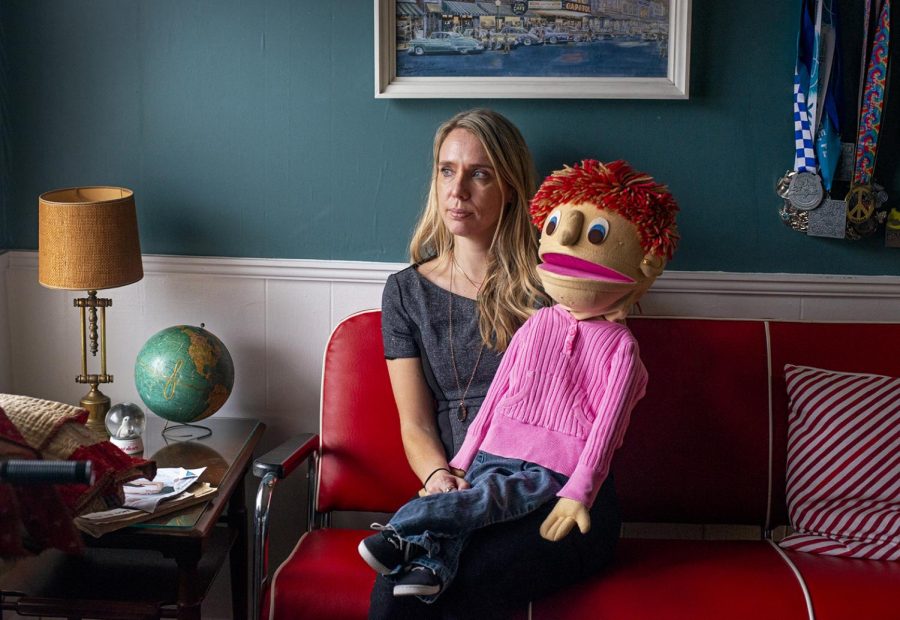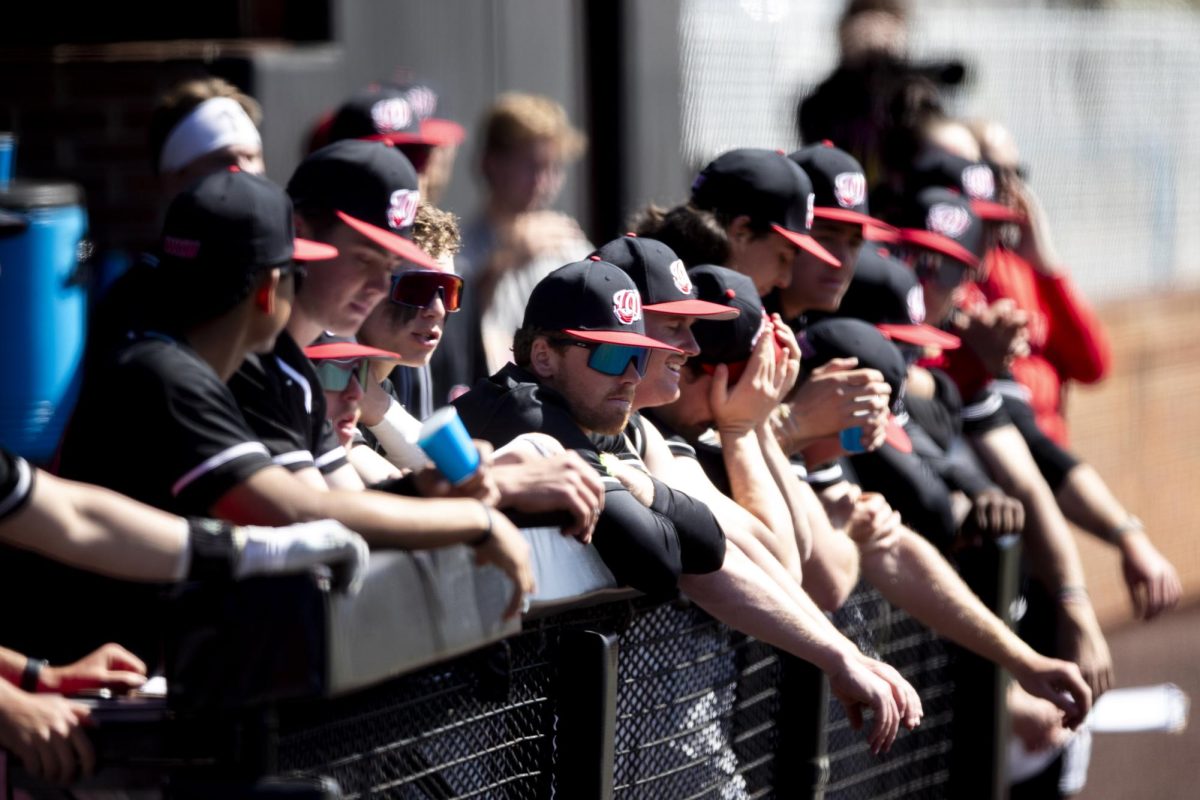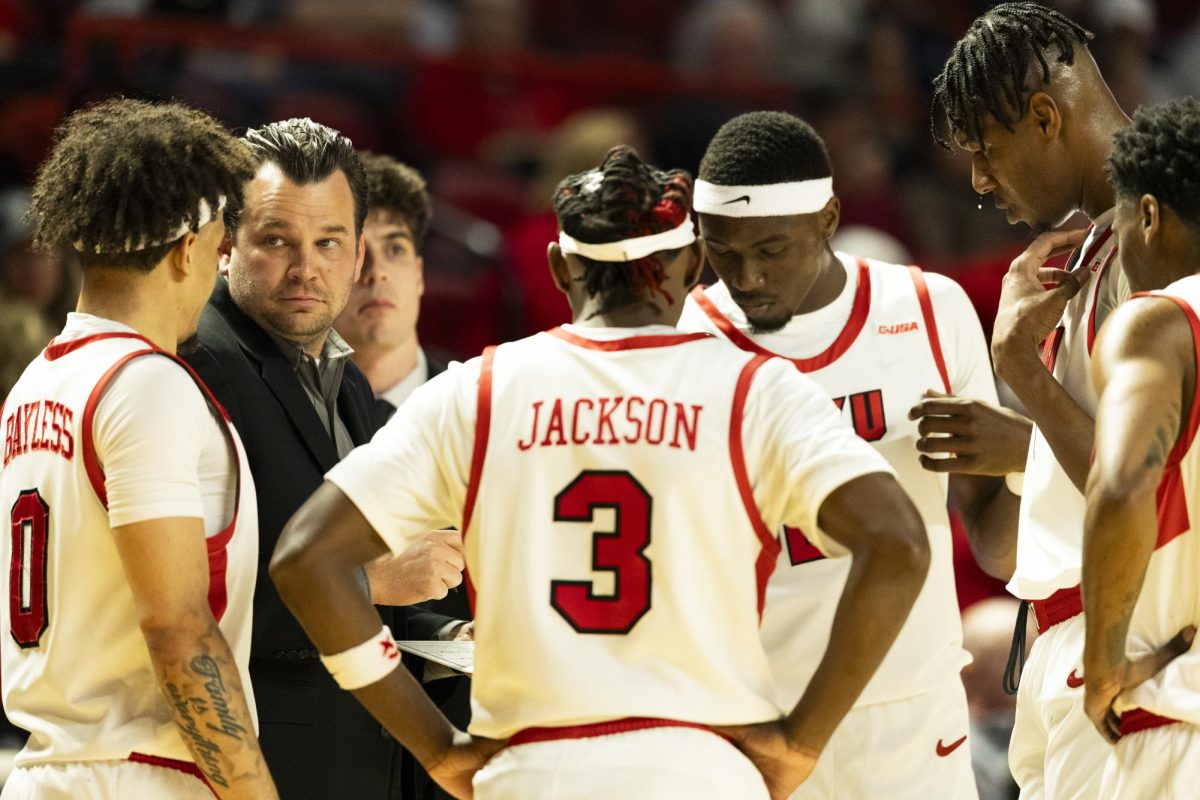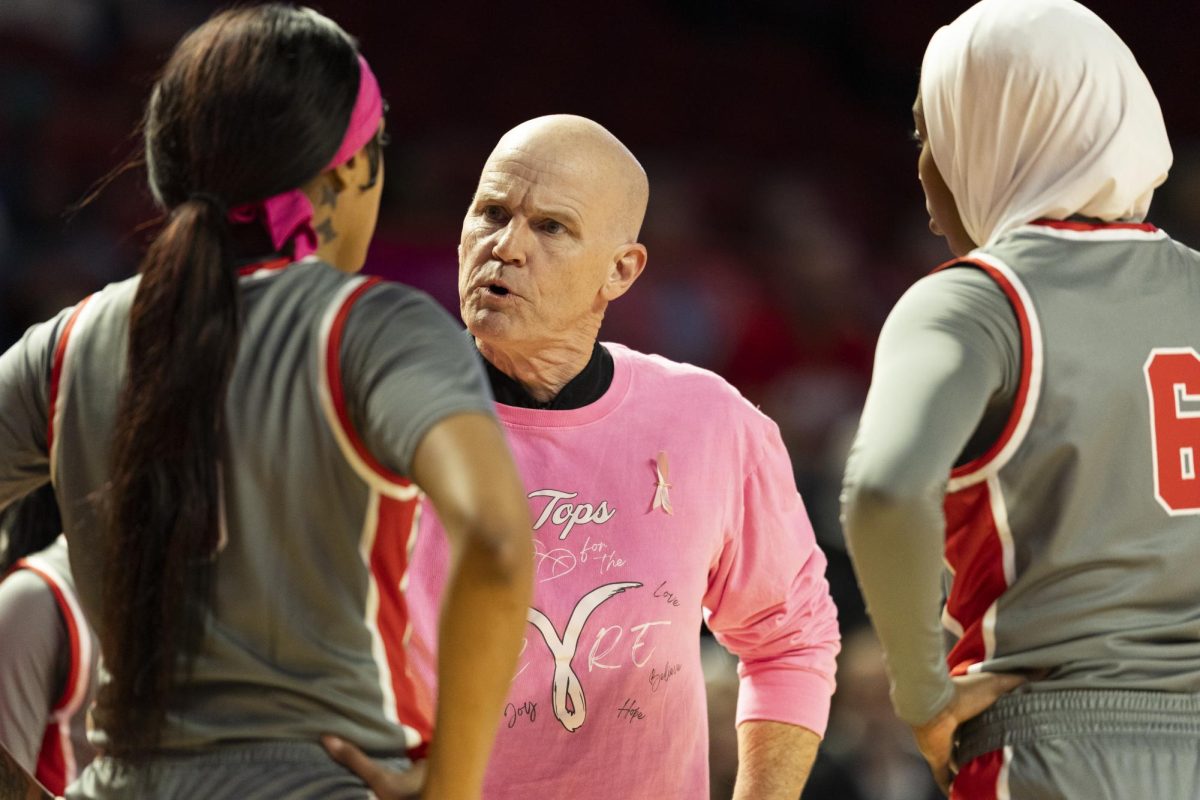Puppet nonprofit aims to help kids with shows they can relate to
January 22, 2019
An educational program on the move has been in Bowling Green for nearly 34 years.
South Central Kentucky Kids on the Block, Inc., is one troupe of an international puppetry organization with the purpose of educating elementary-age children about sensitive, personal and social issues affecting them.
“I really believe in our mission,” said Ashley Reynolds, an administrator for Kids on the Block. “We have 19 lessons, and all these lessons impact their lives.”
According to its website, the local troupe performs approximately 340 times each year in Warren County and surrounding counties. Kids on the Block hosted a summer camp in 2018 where children were able to try their hand at puppeteering.
Jennifer Lindsey has worked as a guidance counselor at Parker-Bennett-Curry Elementary School for 13 years. She started asking Kids on the Block to come in when she began her
time as counselor because she remembered their positive impact on her students when she was a kindergarten teacher.
“The kids love the puppets,” Lindsey said. “The content that they share is so relevant to their lives.”
Kids on the Block uses a puppetry style known as bunraku, a traditional Japanese form. Half-life-size dolls are manipulated by handlers dressed and hooded in black. This dress allows puppeteers to blend in with the black drape background rather than everyday clothing that might clash with and distract from the puppet and its story.
Twenty puppets are featured on Kids on the Block’s website. Each puppet has its picture posted along with its name and a description of its personality, likes, dislikes, abilities and disabilities. One of the organization’s original puppets, Mark Riley, is described as a boy who has cerebral palsy and loves to write for his school newspaper as well as study history and math.
The Kids on the Block’s program director, Amanda Guerra, also works as a puppeteer. One of her favorite puppets is Renaldo Rodriguez, a boy who is blind and loves checkers and all sports.
Guerra has worked for Kids on the Block since graduating from WKU in December 2010. She said she believes the puppets are important because the children easily relate to them.
“I’m able to teach children in a unique way,” Guerra said.
The staff at Kids on the Block is not always able to see the fruits of its labor, Guerra said, since its programs are more about prevention.
As a guidance counselor, Lindsey does sometimes get to see the results of the puppetry programs. She said children have disclosed issues such as child abuse after watching Kids on the Block.
Lindsey said she also learns a lot from the Kids on the Block performances. While watching Kids on the Block with her students, she said she often thinks to herself, “Oh yeah, I need to remember that when I am teaching.”
Many of the children will recall something said by a Kids on the Block puppet even weeks after the performance, Lindsey said.
After each presentation, Kids on the Block has a time of reflection for the children. They are able to write letters and draw pictures, and some children have stayed after in order to ask more questions of the puppeteers.
One of Lindsey’s students stayed after a performance last year to ask more questions. She said many of the questions the student asked were sending up red flags, meaning the administration might need to investigate and intervene in the child’s situation.
Reynolds said during the 2017-2018 school year, one of the students was able to disclose she had been abused by her mother’s boyfriend.
The young girl had been admitted to the emergency room for a medical issue. She leaned over and whispered to the nurse that her mother’s boyfriend had abused her, and a puppet had told her it was important to tell another adult, Reynolds said.
While not every disclosure or impact of the program is seen, lives are still being changed.
Both Reynolds and Guerra said they have had adults stop them to tell them of the times they remember watching Kids on the Block perform at their own elementary schools when they were children. The adults still remember the lessons and specific things they heard during the various Kids on the Block programs, Guerra said.
Even though the puppets cannot move their arms on their own, they have a long and lasting reach on the lives of children in the Bowling Green community.
Features reporter Katelyn Latture can be reached at 270-745-6291 and katelyn.latture423@topper.wku.edu.














